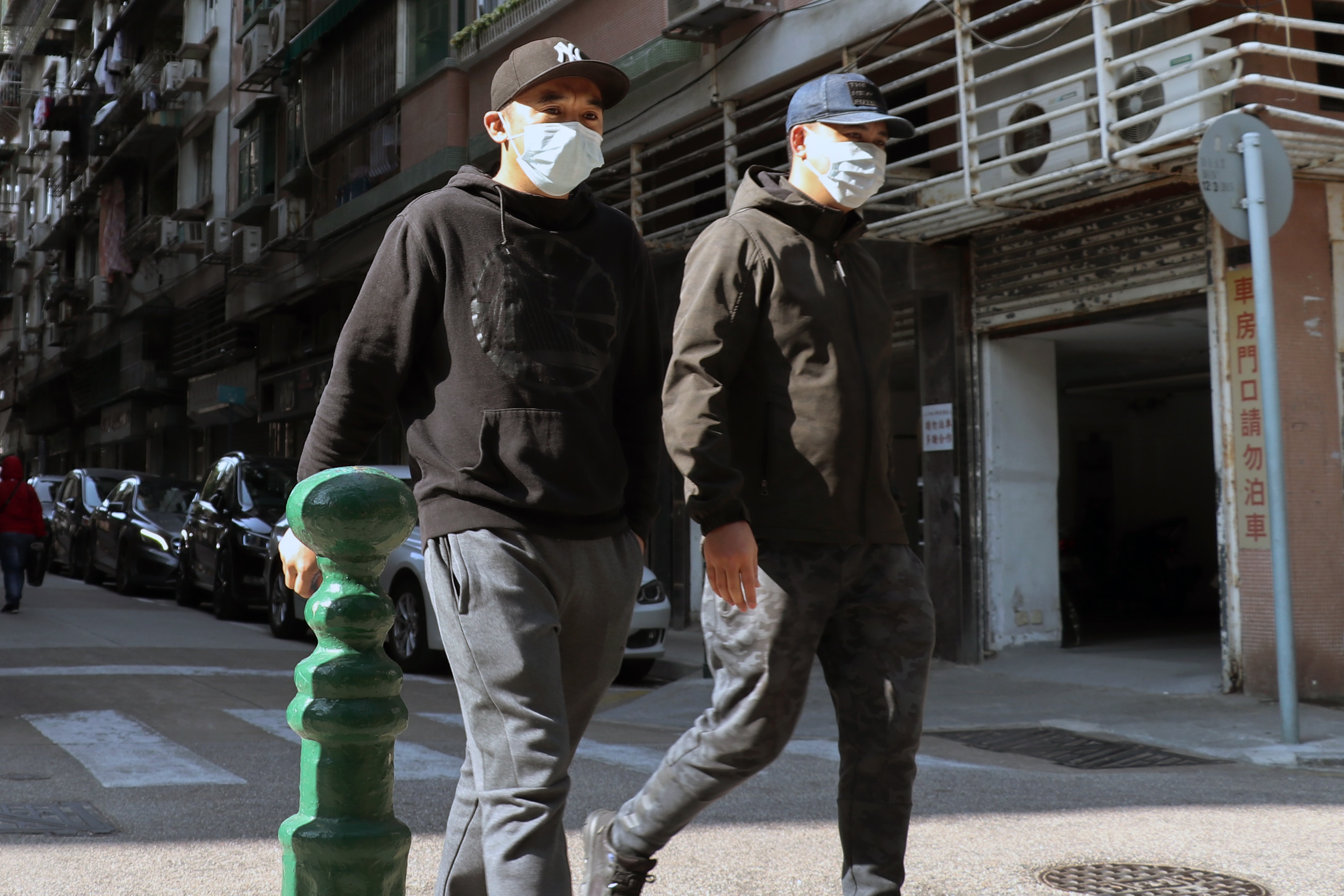News
New threats emerge in outbreak while China voices optimism

But doubts remained about the true trajectory of the epidemic as China again changed its method of counting and new threats emerged outside the country. (File photo by Macau Photo Agency/Unsplash)
BEIJING — Chinese health officials expressed new optimism Thursday over the deadly virus outbreak while authorities in South Korea’s fourth-largest city urged residents to hunker down as fears nagged communities far from the illness’ epicenter.
The confidence voiced by China’s government came as it reported a reduced number of new infections. But doubts remained about the true trajectory of the epidemic as China again changed its method of counting and new threats emerged outside the country.
“The downward trend will not be reversed,” insisted Ding Xiangyang, deputy chief secretary of the State Council and a member of the central government’s supervision group.
Whatever promises were aired where the illness poses its biggest threat, countries around the world continued to grapple with the rippling effects. The latest front in the widening global fight against COVID-19 emerged in Daegu, South Korea, where the city’s 2.5 million residents were urged to stay inside, wearing masks even indoors to stem further infection.
Mayor Kwon Young-jin made a nationally televised appeal for those preventative measures, warning that a rash of new cases could overwhelm the health system. He pleaded for help from the country’s central government.
Daegu and surrounding towns reported 35 new cases of the coronavirus on Thursday.
The flare-up came more than 1,400 kilometres (900 miles) from COVID-19’s epicenter across the Yellow Sea in China’s Hubei province and its capital of Wuhan, a sign of the risks the virus potentially poses to communities across the region and beyond.
“Everything that is not known about this is causing concern,” said Dr. David Heymann, a professor of infectious disease epidemiology at the London School of Hygiene and Tropical Medicine.
Though all but about 1,000 of more than 75,000 reported cases of COVID-19 have been recorded in China, scattered cases have erupted elsewhere.
Iran announced three more infections Thursday, a day after it reported its first two deaths stemming from the virus, and South Korea reported its first fatality. Japan said two former passengers of the Diamond Princess cruise ship had died of the illness, bringing the death toll there to three.
A total of 11 deaths have been confirmed outside mainland China, including two in Hong Kong and one each in France, the Philippines and Taiwan.
The trajectory of the outbreak remained clouded by China’s zigzagging daily reports of new cases and shifting ways of tallying them.
The number of new cases in China declined again Thursday, to 394, a notable shift from the 1,749 figure released a day earlier. Another 114 deaths in China were linked to the virus.
But those statistics came after yet another change in how cases are counted.
Last week, China’s National Health Commission said officials in Hubei would record new infections without waiting for laboratory test results, relying instead on doctors’ diagnoses and lung imaging. But on Thursday it returned to its prior way of counting, a decision sure to aggravate observers who say consistency is key to understanding COVID-19’s path.
The health commission said it was reducing its count of infections by 279 after lab tests found they had wrongly been included in the tally.
Feng Yong, an official for health matters at the Chinese diplomatic mission in Geneva, said the reason for the reversal was that the country’s laboratory capacity had improved dramatically so all patients can now be tested.
Last week, when the methodology was changed, “we did not have enough capacity to give laboratory tests,” Feng told The Associated Press. “So that’s the reason we included all the suspected cases, in order to let them get treatment.”
“Now we have the laboratory capacity, so now they can adjust the case definition again,” he said.
Cities in Hubei with a combined population of more than 60 million have been under lockdown since the Lunar New Year holiday. Authorities halted nearly all transportation and movement except for quarantine efforts, medical care, and delivery of food and basic necessities. “Wartime” measures were implemented in some places, with residents prevented from even leaving their apartments.
The stringent moves have followed public fury over Hubei authorities’ handling of the outbreak at its outset. The risk of human-to-human transmission was played down and doctors who tried to warn the public were reprimanded by police. Wuhan residents reported overcrowding in hospitals and futile attempts to seek treatment.
Many countries have also set up border screenings and airlines have cancelled flights to and from China to prevent further spread of the disease, which has been detected in about two dozen countries.
———
Associated Press journalists Jamey Keaten in Geneva; Marilynn Marchione in Milwaukee, Wisconsin; Aniruddha Ghosal in New Delhi; Katie Tam in Hong Kong and researcher Yu Bing in Beijing contributed to this report.





















